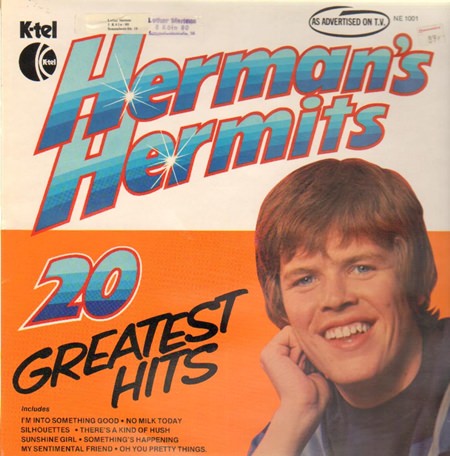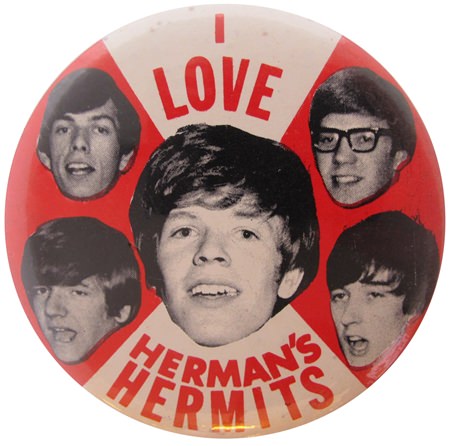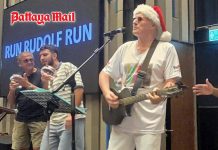
Manfred Mann’s Earth Band: The Roaring Silence (Bronze)
“The Roaring Silence” gave Manfred Mann’s Earth Band their 15 minutes as celebrities in the US, kick started by the hit single “Blinded By The Light”, a Springsteen song, which of course helped as Bruce recently had been named the future of rock’n’roll. In other words: excellent timing. No surprise, though, as Manfred Mann had been the master of timing all the way through the 60s. Nobody could match his instinct for picking the right songs to cover.
Although the different incarnations of the Manfred Mann band always had strong songwriters in the line-up, Manfred reserved the singles for other people’s songs. His absolute favorite was Bob Dylan, and Dylan enjoyed what Manfred Mann did to his songs. “If You Gotta Go, Go Now,” “With God On Our Side,” “Just Like A Woman,” “Mighty Quinn”, “Please Mrs. Henry” all got the stellar Manfred Mann-treatment.
The Manfred Mann pop band was dissolved in 1969. Out of the ashes arose a short lived and very eccentric jazz rock act named Manfred Mann Chapter III. They released two inaccessible albums on Vertigo, before Manfred decided to change style again. Say hello to Earth Band. The 70s were underway, and he found himself attracted to what was coined “progressive rock”. Earth Band didn’t just involve themselves whole heartedly in the genre, they were very much in the driver’s seat developing it.
The album format now ruled, hit singles were of minor importance, yet Manfred kept on interpreting Dylan in this setting too, “Please Mrs. Henry” (yet again!), “It’s All Over Now, Baby Blue,” “Father Of Day, Father Of Night” and “Quit Your Low Down Ways” were all recorded by Earth Band in the period preceding “The Roaring Silence”.
Particularly impressive was “Father Of Day, Father Of Night” on the brilliant “Solar Fire”-album. I even had the pleasure of seeing the band perform the song at a small club in Oslo sometime in late 1973 or early 1974. The sight of Manfred bent over his stacks of keyboards under the low ceilings is stuck in my memory forever. I think Chris Slade wore a headband.
Their “Nightingales & Bombers” album was released in August 1975, just days before Springsteen’s “Born To Run” arrived, and contained a version of “Spirit In The Night” from Bruce’s 1973 debut “Greetings From Asbury Park, NJ” (and incidentally also a Joan Armatrading song, “Visionary Mountains “, not many people had heard of her in 1975).

Manfred had thus discovered Springsteen’s potential long before he became “the Boss.” So enchanted was Manfred with “Greetings From Asbury Park, NJ” that Earth Band recorded a further two songs from the album: “Blinded By The Light” (1976) and “For You” (1980) and on top of that, when Chris Thompson replaced Mick Rogers in 1976, they even re-recorded “Spirit In The Night” and released it as the follow up to “Blinded By The Light”.
“The Roaring Silence” temporarily moved Earth Band into the main stream. The album was too weird to be called a compromise, but they were obviously looking for a taste of the hit parade. And they struck gold with “Blinded By The Light” which went all the way to no. 1 in the States. Bruce Springsteen didn’t reach the top 10 with a single of his own until 1980, and he never ever hit the top spot. So it wasn’t just “Born To Run” and the hype surrounding it that triggered Springsteen’s breakthrough. A spectacled jazz musician, pop star and progressive rocker from Johannesburg certainly deserves some credit.
I was never that fond of Manfred Mann’s Earth Band. “Solar Fire” was great, but then I gradually lost interest. They deserved their success, I had no problems with that, but their albums were too inconsistent, not even the good stuff touched me. Still, good luck to them I thought.
“Blinded By The Light” has an irresistible chorus, and Earth Band squeezes the maximum out of it. The song itself is quite weak. The verses are monotonous, staccato and way too long, it takes the band ages to get to the point (in other words the chorus). Manfred knew how to arrange, however, and the combination of the chilly, tiptoeing Supertramp keyboard, Chris Thompson’s voice and the way the band roars into the choruses very cleverly seduce the listener into believing it’s a better recording than it is. It’s an illusion, but a very good one at that. “Blinded By The Chorus” would have been a more fitting title. By the way, the brutally edited single version is preferable to the album cut.
“Questions” is a better track, much better actually, a wonderfully arranged and performed ballad (Thompson’s voice is awesome) that bases its melody on a theme by Franz Schubert. It’s still a mystery to me that this recording didn’t become a worldwide monster hit. It’s that good.
“The Road To Babylon” is another strong one, it’s got the ebb and flow development that is typical for prog rock, not losing its way as it’s built around a very melodic theme. It lasts for almost seven minutes, never overstaying its welcome.
The remaining tracks are pretty boring and uneventful, tarnished by an overuse of Manfred’s synthesizer; he seems more concerned with making strange noises than giving the songs a sorely needed boost.
Manfred Mann’s Earth Band never managed to build on the success of “The Roaring Silence”, neither in the US nor in the UK. Those who bought the album because of the hit were left disappointed and never returned. Simultaneously quite a few of the group’s prog rock fans probably thought they had sold out.
Another reason for the weaker sales may have been caused by the dramatic change in the music scene at the time, suddenly all these new wave bands appeared with their back to basics attitude. The new cool. And then there was disco. The fact that the Earth Band albums were uneven and stylistically out of focus didn’t help either.
All wasn’t bad though. They kept selling truck loads of albums in Germany and Scandinavia. In Norway every Earth Band LP went Top 10 until 1986, including “Criminal Tango”.
I saw them live in a huge arena in Oslo around 1978. That’s how big they were. During an interview with Manfred Mann just before the concert, I was unfortunate enough to mention that the single version of “Davy’s On The Road Again” was included on the soundtrack of a soft porn movie, “The Stud”, that had Joan Collins playing a nymphomaniac. Manfred shook his head with a patronizing sigh claiming I was wrong, he had complete control over his recordings. None of them would ever end up in a movie without his approval, and specially not in that one.
I kept insisting, and he turned uneasy and grumpy. My interview was not going well. Suddenly he got up, grabbed his press secretary and asked her to check right away. Our conversation trailed off while we were waiting. Manfred was absent, I felt extremely uncomfortable. When the confirmation came, he erupted. The offenders should be tracked down, heads would roll. I packed my stuff and decided to leave. It was all my fault. I never meant to trigger this. Manfred stopped me – “Take it easy, I’m not mad at you,” he said. “On the contrary, I am grateful. Thank you for telling me.”
A couple of years later I checked in a record store. “The Stud” did not contain “Davy’s On The Road Again” anymore. It had been replaced. Blame it on a thoughtless journalist in Oslo who couldn’t hold his tongue. God knows how many heads had rolled. Hope they don’t know where I live!
Released: August 27, 1976
Produced by: Manfred Mann and Earth Band
Contents: Blinded by the Light/Singing the Dolphin Through/Waiter, There’s a Yawn in My Ear/The Road to Babylon/This Side of Paradise/Starbird/Questions
Personnel:
Manfred Mann – keyboards, backing vocals
Colin Pattenden – bass
Dave Flett – lead guitar
Chris Hamlet Thompson – lead vocals, rhythm guitar
Chris Slade – drums, backing vocals, percussion
Additional Personnel:
Doreen Chanter – backing vocals
Irene Chanter – backing vocals
Susanne Lynch – backing vocals
Mick Rogers – backing vocals
Barbara Thompson – saxophone
 |
 |
 |





